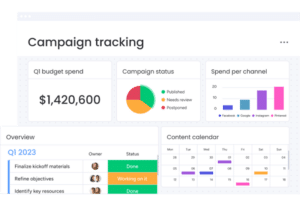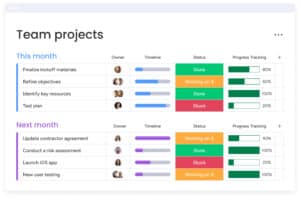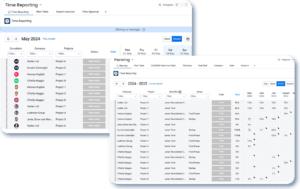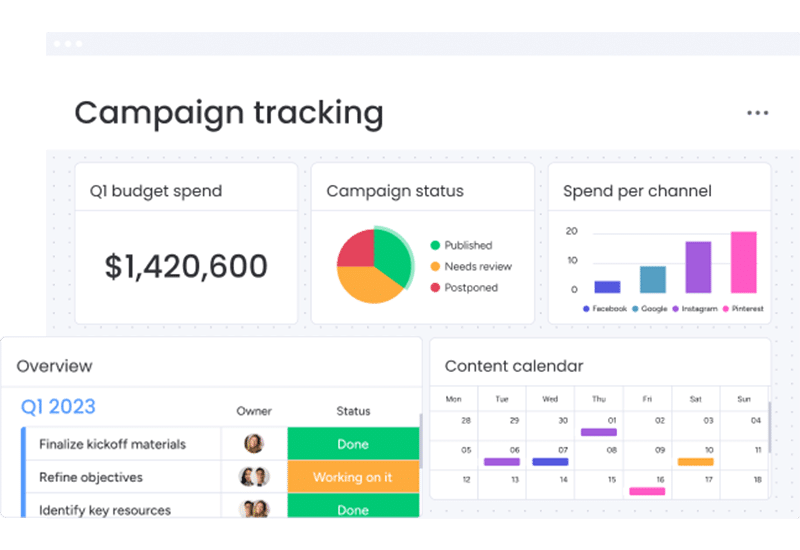Introduction
Customer Relationship Management, commonly known as CRM, is not just a software but a holistic approach that businesses use to manage all their interactions with current and potential customers. It serves as a centralized platform to store customer data, track engagements, manage sales, and execute marketing campaigns, among other functions. With the advancement of technology, CRM has moved far beyond simple databases; it has become an essential business tool for customer engagement, analytics, and overall business growth. The future of CRM and its trends to watch in 2024 are focused on further improving the customer journey and analytics. As a business, it’s crucial to stay updated and informed about these emerging trends.
Why the Future of CRM and Trends to Watch in 2024 is Crucial for Businesses
As we step into a new year, it’s imperative for businesses to look ahead and adapt to the rapidly evolving landscape of customer relationship management. The future of CRM is not just an industry buzzword; it’s a vital consideration for any business aiming to achieve long-term success in the digital age. The trends we’ll see in 2024 are set to revolutionize how businesses interact with customers, use data, and achieve their strategic goals.
What to Expect from This Post
In this comprehensive guide, we will delve into the future of CRM, specifically focusing on the trends to watch in 2024. From artificial intelligence (AI) and automation to predictive analytics and user experience enhancements, these trends will shape the way companies across various industries manage their customer relationships. So whether you’re a startup or an established corporation, understanding the future trends of CRM can give you a significant competitive edge.
The Evolution of CRM
The Humble Beginnings: Contact Management Systems
In its most primitive form, Customer Relationship Management (CRM) began as a simple contact management system. These were essentially digital Rolodexes that businesses used to store customer information and track interactions. It was a significant leap from manual, paper-based records, but it only scratched the surface of what CRM would eventually become. Understanding the historical context is essential as we look into the future of CRM, especially the trends to watch in 2024.
The Dot-Com Bubble and Rise of CRM Software
As businesses and technologies advanced during the late ’90s, the dot-com bubble brought along a wave of enterprise software, including the first comprehensive CRM systems. Companies like Salesforce stepped into the limelight, offering cloud-based solutions that encompassed sales automation, customer service, and even rudimentary marketing features. This era marked a significant shift in how businesses viewed customer relationships, incorporating data and analytics into the equation.
Social Media and Customer Engagement
The advent of social media platforms changed the CRM game altogether. Businesses could no longer afford to be passive; they needed to engage with customers where they were most active—online. Social CRM became the buzzword, extending the traditional CRM capabilities to monitor, respond to, and engage with customer interactions on social media platforms. The impact of this shift is still resonant as we anticipate the future of CRM.
Beyond Software: CRM as a Business Strategy
Today, CRM is not just software but a comprehensive business strategy that places the customer at its core. Modern CRM systems offer advanced features, including AI-driven analytics, predictive marketing, automated workflows, and multi-channel customer engagement. They serve as a central hub that integrates various aspects of a business, from sales and marketing to customer service and analytics.
Preparing for the Future: Why Understanding the Evolution Matters
As we explore the future of CRM and the trends to watch in 2024, understanding its evolutionary journey offers valuable insights. It helps businesses anticipate where CRM technology is headed and how they can prepare to leverage its full potential. With each technological advancement, CRM systems have become more integrated, intelligent, and indispensable to business success.
Omnitas Newsletter
Sign up for our monthly newsletter to stay up-to-date on our latest blog articles, videos and events!
Thank you!
You have successfully joined our subscriber list.
Why Staying Updated on CRM Trends is Essential
The Ever-Changing Landscape of Business Technologies
In a rapidly evolving digital environment, staying stagnant is not an option for businesses that aspire to thrive. The technologies that powered successful strategies yesterday may not be sufficient for tomorrow’s challenges. This is particularly true for Customer Relationship Management systems. As we look into the future of CRM and the trends to watch in 2024, it becomes apparent that businesses must stay up-to-date to remain competitive.
Adapt or Fall Behind: The Competitive Edge
The CRM landscape is increasingly competitive, with more providers entering the market and existing platforms continually evolving. Companies that fail to adapt to new trends risk losing their competitive edge. Modern CRM systems are becoming more sophisticated, providing functionalities that can drastically improve customer engagement, data analytics, and operational efficiency. Staying updated on these changes can be the difference between leading the market or playing catch-up.
Data-Driven Decision-Making: Your Unfair Advantage
One of the key benefits of modern CRM systems is their capability to offer data-driven insights. With the advent of advanced analytics, machine learning, and artificial intelligence, CRM platforms can now predict customer behaviour, automate routine tasks, and even suggest the next-best actions for your sales and customer service teams. These functionalities allow businesses to make data-driven decisions, turning their CRM system into an invaluable strategic asset.
The Role of CRM in Shaping Business Strategies
The days when CRM was merely a tool for tracking customer interactions are long gone. Modern CRM platforms have become comprehensive solutions that influence almost every aspect of business—from sales and marketing to customer service and beyond. As we anticipate the future of CRM and the trends to watch in 2024, it’s clear that CRM will play an increasingly central role in shaping effective business strategies.
Future-Proofing Your Business: An Investment, Not a Cost
Adopting new CRM technologies might seem like a significant investment, but it’s more accurate to consider it a critical step in future-proofing your business. By staying abreast of upcoming trends, you’re not just adapting to change; you’re proactively preparing your business to leverage new opportunities for growth and efficiency.
CRM Trends to Watch in 2024
AI and Automation: Smarter Systems, Efficient Operations
Artificial Intelligence (AI) is no longer a thing of the future; it’s already reshaping the way businesses operate. In the context of CRM, AI helps in automating routine tasks, offering personalized recommendations, and even predicting customer behaviour. The future of CRM is increasingly becoming intertwined with AI capabilities, and the trends to watch in 2024 include more robust AI functionalities like natural language processing, sentiment analysis, and advanced predictive analytics.
Omnichannel Support: Unified Customer Experiences
Customers nowadays interact with businesses through a multitude of channels—email, social media, customer portals, and even chatbots. The key to effective customer engagement is providing a seamless experience across all these platforms. Omnichannel support is expected to be a dominant trend in the future of CRM. Businesses should anticipate more integrated solutions that allow for a unified view of customer interactions, irrespective of the channel used.
Predictive Analytics: Making Data Work For You
As the amount of customer data continues to grow, the focus is shifting towards making that data actionable. Predictive analytics is emerging as a crucial feature in CRM systems, enabling businesses to forecast customer behaviour, sales trends, and marketing campaign effectiveness. Understanding these predictive models is key for anyone looking to grasp the future of CRM and the trends to watch in 2024.
User Experience (UX) Enhancements: Ease of Use Meets Functionality
User experience is another pivotal area where CRM systems are likely to see substantial advancements. It’s not just about what the system can do, but also how easily it can do it. In 2024, expect to see CRM systems with more intuitive interfaces, customizable dashboards, and workflow automations that make the platform easier to use without sacrificing functionality.
Vertical-Specific Features: Industry-Focused Customizations
Another interesting trend to keep an eye on is the development of vertical-specific CRM features. As CRM systems become more sophisticated, we are likely to see solutions that are tailored for specific industries, offering functionalities that address unique challenges and opportunities within those sectors.
The Rise of Mobile CRM: Access Anywhere, Anytime
With remote work becoming more prevalent, mobile access to CRM systems is not just a convenience but a necessity. The ability to access customer data, update records, and even close deals while on the go is a feature that’s becoming more popular and sought after. Platforms like monday.com have already adapted to this demand with its mobile application for your on-the-go team.

How Businesses Can Prepare
Assess Your Current CRM Capabilities
Before diving into the future of CRM and the trends to watch in 2024, it’s crucial for businesses to assess their existing CRM capabilities. This will provide a clear benchmark for what needs to be upgraded or adapted. Review features like automation, analytics, and customer engagement metrics to identify areas that might need improvement.
Research and Evaluate New CRM Solutions
If your current CRM system is lagging or missing essential features that will become standard in 2024, it might be time for an upgrade. Research the market for solutions that align with the upcoming trends, such as AI capabilities, predictive analytics, and omnichannel support. Use this research as a basis for evaluating new CRM platforms that can future-proof your business.
Training and Skill Development
A CRM system is only as effective as the people using it. As new features and functionalities become available, it’s imperative to invest in training for your team. This could include online courses, webinars, or even hiring experts for in-house training sessions. Keep your team updated on the latest best practices in CRM management.
Integration and Data Migration
One of the biggest challenges in upgrading or changing CRM systems is the migration of existing data. This step should be carefully planned to ensure no essential data is lost and that the new system integrates seamlessly with other business software. Consult with IT specialists and data analysts for a smooth transition.
Budgeting and ROI Considerations
Upgrading your CRM is an investment, and like all investments, it should be weighed against the potential return. Outline the costs involved in acquiring a new CRM system, including training and data migration. Balance these against the anticipated ROI, which could come in the form of increased sales, higher customer retention, or improved operational efficiency.
Test and Iterate
Once you’ve implemented the new CRM features or systems, it’s important to monitor their performance. Use KPIs that align with your business goals to measure success. If something isn’t working as expected, be prepared to revisit your strategy and make necessary adjustments.
Conclusion
Embracing the Future of CRM
As businesses continue to evolve in a digitally connected world, Customer Relationship Management systems will play an increasingly pivotal role in shaping their success. The future of CRM is not a distant concept; it’s unfolding before our eyes. By staying informed about the trends to watch in 2024, companies can position themselves at the forefront of innovation and customer engagement.
Key Takeaways
- AI and Automation are game-changers, making CRM systems smarter and operations more efficient.
- Omnichannel Support will provide seamless, unified customer experiences across multiple platforms.
- Predictive Analytics will turn your data into actionable insights, allowing for data-driven decision-making.
Your Next Steps
Preparing for the future of CRM and the trends to watch in 2024 may seem daunting, but the effort is an investment in your business’s long-term success. Assess your current capabilities, research new solutions, and equip your team with the necessary skills and knowledge. Your proactive approach today will be your competitive advantage tomorrow.
The CRM landscape is ever-changing, and businesses must adapt to stay relevant and successful. It’s not just about adopting new technologies but about understanding how these technologies can drive your business objectives, improve customer relationships, and enhance operational efficiency. As we look towards the future of CRM in 2024, the key to success lies in preparation and adaptability.
Make sure to sign up for our monthly newsletter below if you liked this blog article and want to increase your knowledge in the area even further. If you’d like some help and guidance with your CRM efforts, you can contact us to book a meeting with our experts!
Omnitas Newsletter
Sign up for our monthly newsletter to stay up-to-date on our latest blog articles, videos and events!
Thank you!
You have successfully joined our subscriber list.
























